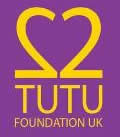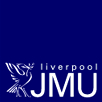Breaking the Silence :
African Lesbians
Growing up in Zimbabwe as a female I was irrelevant. As a lesbian, I was non-existent and my visibility would have cost me jail time, 'corrective' rape, forced marriage, banishment or even my death. Throughout my life in Zimbabwe there was not one single portrayal anywhere of gayness, queerness or lesbianism combined with Africaness. The only person that I had ever heard of being gay was Elton John and even that was spoken of in whispers. Africans it seemed were not gay, and so I had nowhere to place or understand the feelings that were abound within me.
Zimbabwe as of most of Africa follows a patriarchal macho society, with clearly defined roles of men and women, this combined with the fact that community and family are of greater importance than the individual. All females feel pressure to live up to expectations of the family and community. When one does not live up to these expectations or roles one is seen as a threat and of bringing shame to their family. Family is everything in Zimbabwean culture. The extended family and wider community have immense power and have a say in your ability to succeed, your access to employment, education and your life. Without the support of family in Africa, it is simply not possible to survive. In some cases this importance placed on family and community can be immensely positive as long as you as an individual do not fall outside the accepted 'norms' of that society.
As a visible lesbian in African society my sexuality would be punishable by any one of these actions: 'corrective rape', imprisonment, honour killings, public floggings, burning, stoning and forced marriage.
However you cannot discuss the culture of any African country without acknowledging the effects that 100 years of intrusive European political, social, cultural and economic rule has had on those countries.
Prior to European involvement in Africa there is evidence of same-sex unions being tolerated, understood and acknowledged within traditional cultures. Boy wives and female husbands are prevalent in oral traditions of the Bantu tribes in Kenya such as the Kikuyu and the Kamba. In the Nile region, Kalenjin, women-to-women marriages were welcomed and were accepted as alternatives to heterosexual marriages. In these tribes elderly women are encouraged to take on female wives, not solely for the sake of inheritance but also as a way of promoting procreation.
In South Africa and Southern Africa, Zimbabwe included, there is a tradition that is acknowledged to this day of ancestral marriages of female traditional healers (sangoma) to other women.
During the colonialist and apartheid-era 'sangoma's' were portrayed as evil and primitive witchdoctors. However the same-sex sangoma's still hold some respect to this day and because of this they are not subject to the macho misogynistic society that promotes the "corrective rape" of women as a way of curing them of their lesbianism that has become so much part of the modern black South African culture.
You may not agree that the afore-mentioned relationships could be classified as "lesbianism." But then Africans have always suffered at the hands of the European trying to get to "the Heart of Africa" by observing it through a very Eurocentric colonialist lens.
With its laws in one hand, and The Bible of condemnation on the other, colonialism wiped away the old African world and the new world is a consequence of European colonial rule. Contrary to popular belief colonialism did not bring homosexuality to Africa. Colonialism brought homophobia and Victorian laws regarding Victorian-era definitions of sexual identity. The hold that Christianity has over Africa cannot be underestimated. Of recent years, this has taken on a new level of extremism fuelled and financed by the ever-growing power of right-wing American evangelists. This tidal wave of religious zealousness has birthed a witch-hunt across many African countries against lesbian, gay bisexual transgender and inter-sex (LBGTI) people, such as the tabling of the Ugandan Anti-Homosexuality Bill which proposes the death penalty for repeat homosexual act. There is also high profile imprisonment of LGBTI and perceived LGBTI individuals, such as Steven and Tiwonge in Malawi, and the endemic 'corrective' rape of lesbians in South Africa, where it is estimated that 10 actual or perceived lesbians are raped every week in the misguided hope of 'correcting' their sexual orientation and 'curing' them of their lesbianism.
Hence in many African societies, LGBTI people are mostly invisible, silenced and forced to live in the closet or risk death.
I am a refugee. Many other LGBTI people such as myself have been forced to flee our countries to seek asylum in order to be who we are and to preserve our lives. As it stands, eight countries in the world still carry the death penalty for homosexual acts. These are Yemen, Iran, Mauritania, Sudan, northern Nigeria, Saudi Arabia, Somalia and the United Arab Emirates.
In Zimbabwe, the UK is often portrayed as a 'democratic society of human rights.' I came here to seek asylum on the grounds of homophobic persecution in Zimbabwe. I was shocked by the appalling treatment I received at the hands of the Home Office. At first, when I applied for an extension to my visa they 'declined' my application. Then they proceeded to withhold my passport from me - not for a month or two but for seven years. For seven years I was effectively a prisoner in the UK. Unable to go home, unable to move forward, unable to try my chances at claiming asylum elsewhere. I was left with no official identification papers that said who I was and where I had come from. For seven years I wrote letters to the Home Office begging for my passport. I was unable to work, unable to rent accommodation and unable to continue with my studies. I had no family here. I was a stranger, far from home and forced into vagrancy by the Home Office. I would not wish this situation on anyone. I cannot describe to you the isolation and loneliness one feels to be walking the streets in a city so far from home. Sleeping on buses and being forced to work illegally in shit jobs for shit pay.
I was eventually detained and interned in a detention centre in Dover. Make no mistake about it, detention centres are prisons. Your basic freedoms are taken away. I was transported through the night in a van, confined with an inner cage. It is common practice to transport asylum seekers through the night and in 'meat wagons'. On arrival at Dover, I was finger-printed like a criminal and had all my possessions removed, except the clothes that I was standing in. I was locked up, unable to go outside when I desired and unable to eat when I desired. I had to ask permission to use the bathroom, so the doors could be unlocked. I was locked in a cell at night. Stripped of all my basic human freedoms, I was made powerless - held in a room with bars at the window and cold walls. I had travelled so far to seek safety in England, only to find that it was a country that incarcerates refugees - even children - in detention centres; people whose only crime has been to flee persecution or who have had the misfortune to have been trafficked here.
I did eventually win my right to stay in the UK. But the Home Office fought me all the way. I took them to appeal and represented myself in court - and won. I eventually received my passport back. I am a refugee. I am black. I am African. I am a lesbian. But I am not just these labels. I am so much more than that. I am a human being with all the hopes and dreams of other human beings.
Back: Features |








